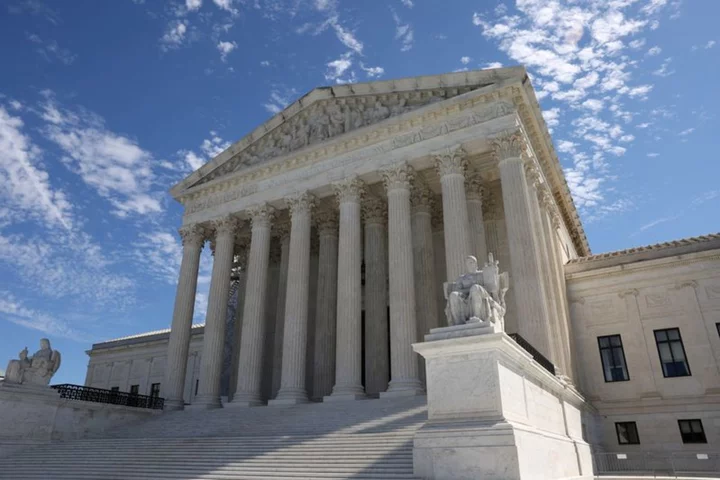By John Kruzel
WASHINGTON The U.S. Supreme Court is set to open its new nine-month term on Monday featuring cases that will test how far its 6-3 conservative majority is willing to steer American law in a rightward direction.
The justices kick off the term with arguments scheduled for 10 a.m. (1400 GMT) in a case from Iowa involving the sentencing of a non-violent drug offender. Among the 34 cases the court already has agreed to hear this term are major ones involving gun rights, the power of federal agencies, social media regulation, OxyContin maker Purdue Pharma's bankruptcy settlement, the legality of Republican-drawn electoral districts and more.
The conservative justices have shown assertiveness in major rulings in the past two years. The court has ended its recognition of a constitutional right to abortion, expanded gun rights, restricted federal agency powers, rejected affirmative action in college admissions and broadened religious rights.
Abortion could be front and center again for the justices this term as President Joe Biden's administration has asked them to hear its appeal of a lower court's ruling that would restrict the availability of the abortion pill mifepristone.
On gun rights, the justices are poised this term to decide whether a 1994 federal law that bars people under domestic violence restraining orders from possessing firearms violates the U.S. Constitution's Second Amendment "right to keep and bear arms."
The first argument of the new term involves a bid by inmate Mark Pulsifer, who is serving a 13-1/2 year prison sentence after pleading guilty to selling methamphetamine, to receive a lighter sentence under a bipartisan 2018 law signed by Republican then-President Donald Trump that aimed to reduce the sentences for certain non-violent drug offenders.
Pulsifer has argued that he is eligible for resentencing under the law, called the First Step Act. At issue is how to interpret the law's eligibility criteria in order to determine if Pulsifer's prior 2013 felony drug conviction disqualifies him from a sentence reduction, a ruling with stakes for thousands of other inmates.
The justices on Tuesday are due to hear the first of at least three cases posing legal challenges to what conservative critics often refer to as the "administrative state," the federal bureaucracy whose technical expertise shapes the many rules and regulations affecting businesses and individuals.
Tuesday's arguments involve a constitutional challenge to the funding structure of the Consumer Financial Protection Bureau, the top U.S. consumer finance watchdog agency. Later in the term, the justices will hear a bid to limit the in-house enforcement proceedings of the Securities and Exchange Commission, the financial markets regulator, as well as a case that could make it harder for federal agencies to defend their actions against court challenges.
The court on Friday agreed to decide this term the legality of Republican-backed state laws in Texas and Florida that constrain the ability of social media companies to curb content on their platforms that these businesses deem objectionable.
The justices are opening their annual term on the first Monday of October, in keeping with tradition. The term debuts with some justices under ethics scrutiny after revelations this year of their ties to wealthy conservative benefactors. Reports detailing travels on private jets and yachts as well as real estate deals have brought renewed attention to the lack of a binding ethics code for the top U.S. judicial body.
Coinciding with the beginning of the new term, the U.S. Postal Service on Monday is set to unveil a postage stamp featuring the late liberal Justice Ruth Bader Ginsburg, who died in 2020. Trump appointed Amy Coney Barrett to replace Ginsburg, creating the current conservative super majority.
(Reporting by John Kruzel; Editing by Will Dunham)

